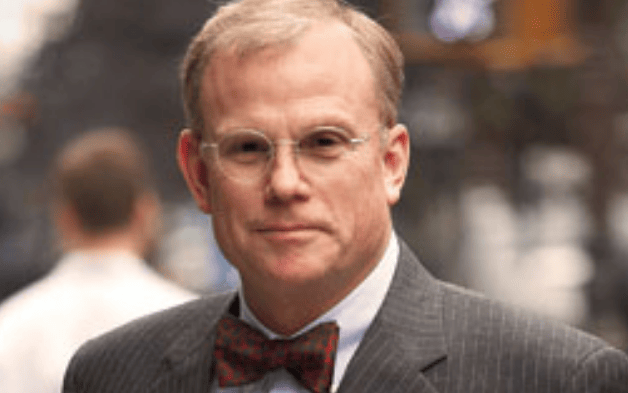Even before the current crisis, globalisation was under threat due to the wave of populism around the world. So does this crisis mark the end of globalisation? What would de-globalisation look like given the interconnectedness and complexity of the economy and what does it mean for investors’ portfolios?
The Butterfly Defect: How Globalization Creates Systemic Risks, and What to Do about It
Professor Ian Goldin was the founding director of the Oxford Martin School from 2006 to 2016. He is currently director of the Oxford Martin Programme on Technological and Economic Change.
Before coming to Oxford, Professor Goldin was vice president of the World Bank (2003-2006) and prior to that the bank's director of development policy (2001-2003). He served on the bank's senior management team and led the bank's collaboration with the United Nations and other partners as well as with key countries. As director of development policy, he played a pivotal role in the research and strategy agenda of the bank.
From 1996 to 2001 he was chief executive and managing director of the Development Bank of Southern Africa and served as an advisor to President Nelson Mandela. He succeeded in transforming the bank to become the leading agent of development in the 14 countries of Southern Africa. During this period, he served on several government committees and boards, and was finance director for South Africa's Olympic bid.
He has also been principal economist at the European Bank for Reconstruction and Development (EBRD) in London, and program director at the OECD Development Centre in Paris, where he directed the programs on trade, environment and sustainable development.
Amanda White is responsible for the content across all Conexus Financial’s institutional media and events. In addition to being the editor of Top1000funds.com, she is responsible for directing the global bi-annual Fiduciary Investors Symposium which challenges global investors on investment best practice and aims to place the responsibilities of investors in wider societal, and political contexts. She holds a Bachelor of Economics and a Masters of Art in Journalism and has been an investment journalist for more than 25 years. She is currently a fellow in the Finance Leaders Fellowship at the Aspen Institute. The two-year program seeks to develop the next generation of responsible, community-spirited leaders in the global finance industry.
Key takeaways
- It is simply not true that the pandemic has killed globalisation. For example, COVID-19 has sharply accelerated digital globalisation. The US is, however, de-globalising itself through its policies.
- COVID-19 has driven sharp acceleration across four key trends – automation/robotics, customisation, immediacy and nationalism/protectionism. What was thought impossible in January is now mainstream in June.
- The pandemic will lead to a repricing of all asset classes which will require a rethinking of investment decision-making. There will also be a new wave of M&A.
- There is no return for fossil fuels. ESG is pushing in the right direction because it is building resilience. But it is not enough.
- Government is back. Big time. To manage global threats we need stronger global institutions and stronger collaboration.
- Young people are making huge sacrifices to keep old people alive and there will be payback for this.
- We are at a crossroads, but will the outcome parallel WWI or WWII? The answer makes a huge difference to the future of mankind.
- There is reason to be bullish on China:
- The quality of growth is improving.
- They have 4 million less workers this year than last due to demographics therefore AI, robotics and automation is a blessing, not a curse.
- A Cold War 2.0 with USA and China at the centre would be disastrous for global growth. If there is a tech race between US and China, China will win, by some distance. 30 per cent of AI recruits in Silicon Valley come from China. The idea that we are not interdependent on AI is a nonsense.
- A Democratic US election win may be as disastrous for the US-China relationship as a Trump win, although the Democrats may manage the relationship with greater sophistication.
- I worry about 10 million workers each year coming onto the African labour market. Where are the labour-intensive jobs of the future for low skilled workers? Previously what was done by thousands of people in Bangalore is now done by a single server in a basement.
- A world with unequal trade relations is a dangerous world to inhabit. The small players need to be protected from the giants.
- The absence of global authority may create a second wave of corona via airlines. Other future risks include:
- Natural disasters
- Cyber attacks
- Disruption to communication lines between East & West
- Finance risk not captured by legislation such as Basel II
- Overly concentrated geographic risk
Poll results
What form will globalisation take in the new world order?





